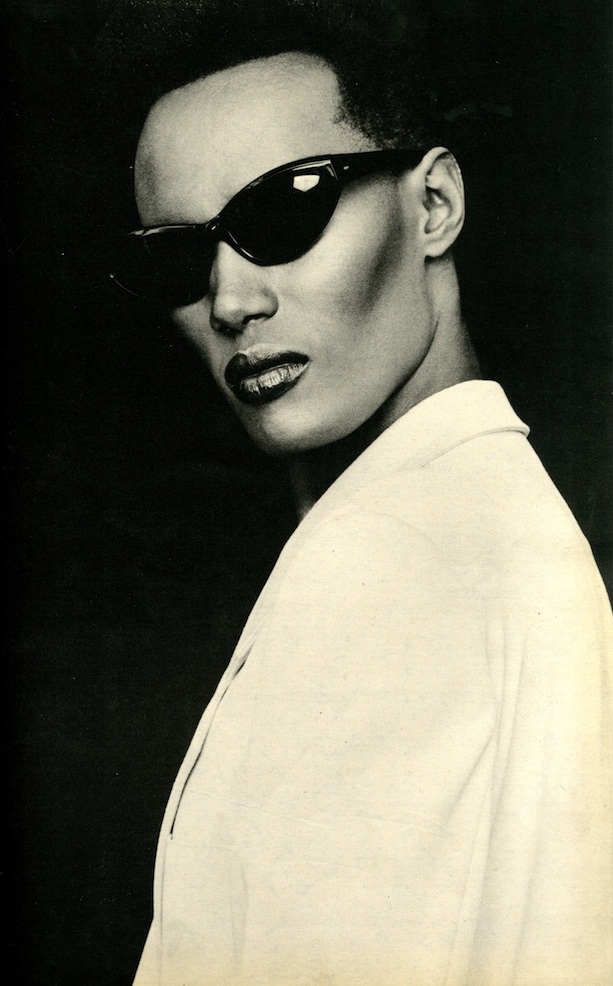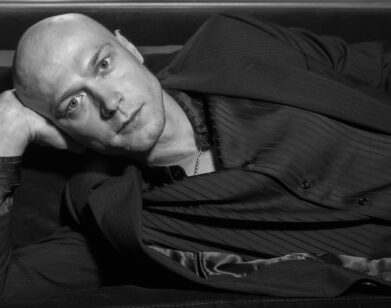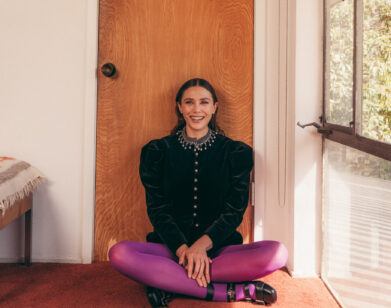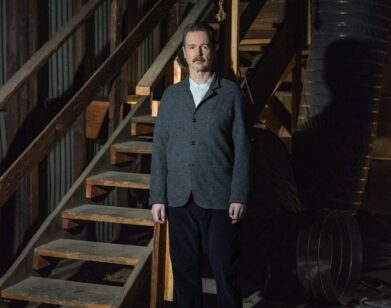Five minutes with the legendary Grace Jones
In an early scene of the new documentary Grace Jones: Bloodlight and Bami, the ferocious songstress and boundary-smashing model—whose prior silver screen highlights include portraying an Eiffel Tower-scaling Bond henchwoman and a centuries-old vampire stripper—signs autographs for fans huddled behind a barricade. One of them asks if she’d ever act in another movie, to which she commandingly answers, “My own!” This sets in motion a globetrotting journey a full decade in the making, acquainting us with Jones’ loved ones while peeling away her enigmatic, larger-than-life persona.
Director Sophie Fiennes is with the avant-pop legend when she delivers powerhouse performances in a Dublin theatre, attends church with her mother and revisits her Pentecostal upbringing in Jamaica, sips Cristal in her hotel room in a fur coat and reconnects with her former co-conspirator (and father to her son) Jean-Paul Goude in Paris. Over the course of the film, the subversive 69-year-old performer—who reminds us men should be penetrated at least once “so they know what it’s like to receive”—reveals herself like she seldom has before. Judging by the outpouring of praise during a post-screening Q&A at the Toronto International Film Festival last week, audiences were relieved that the ageless diva—who once threw her baby shower at the legendary Paradise Garage dressed as a toy soldier—has lost none of her bite or risk-taking spirit.
When Interview meets her the following evening for an expeditious five-minute chat in the dining room of an opulent Yorkville hotel, Jones is feasting on a hearty meal of steak frites. “I have to eat and talk, darling, so I’m afraid you’ll hear my munching on your recorder.” And with that said, Jones proceeded, her wit unimpaired and her laughter as rip-roaring as ever.
MICHAEL-OLIVER HARDING: TIFF’s world premiere was such a party. Libations were being passed around very generously in my section of the Elgin Theatre, and the capacity crowd was cheering and singing along to every one of your performances in the doc—as if you were live on stage. Is that what you had in mind when you first met Sophie for the project?
GRACE JONES: Oh, absolutely! (laughs) And there was no hesitation. From the get go, it was like, we’re doing this! The connection with Sophie was immediate and just magic. I met her through my brother [Bishop Noel Jones], because I saw the film [Hoover Street Revival] she made about him. And I had complete faith in her.
MICHAEL-OLIVER HARDING: People who mention your malleable identity usually point to your trailblazing androgynous persona. But watching the film, it struck me how malleable your use of accents also happens to be. You not only speak French but also fluctuate between American, Jamaican and British inflections and speech rhythms, depending on context and company. Is that something you do consciously?
GRACE JONES: No. I think it’s somewhere in my head, in my travel space, and it just comes out. It’s a visual thing that happens unintentionally. People will tell me, “You do realize you just spoke with that accent, right?” And I’ll go, “Oh, did I?” So it’s not something I think about. As we talk, I have a visual about my speech and it just comes out like that. If that makes any sense! (laughs)
MICHAEL-OLIVER HARDING: My favourite line of the film has you speaking French. You let a TV producer know his lustful, Victoria Secret-esque choreography concept for your song “La vie en rose” is in poor taste. “C’est très étrange, I’m like a madam in a whorehouse,” you tell him. How frequently do you find yourself turning down tacky propositions?
GRACE JONES: (laughs) Often! Actually, I’ve walked off a couple of really tacky sets, where they wouldn’t change it. So I’m like, “okay, I’m out of here.” (laughs) And usually they don’t ask me back! (laughs) I basically tell them, “Just give me a white wall and I’ll be happy! Give me a grey wall, a white wall, a black wall, a red wall.”
MICHAEL-OLIVER HARDING: But not a softcore squad of lingerie-clad ladies.
GRACE JONES: For some reason, I can inspire things that are in good taste, but then sometimes I can also inspire, like, wooooow. (laughs) Some producers have this really sexual idea, and they’re like, “Now I can do this, with her!” (laughs) And I will just go: non, non, non. That’s not me, it’s you. You’re projecting, man.
MICHAEL-OLIVER HARDING: Another film premiering at the fest explores the early years of Basquiat. You guys were friends with Keith Haring and Andy Warhol, and you both performed at legendary ’80s nightclub Area. How do you remember him?
GRACE JONES: He was just so sweet and easygoing. He really didn’t have a clue how his work was going to be received. Because you just never know, do you? So he was totally unpretentious and was just always giving away stuff. In that way, he was a lot like Keith; that’s something they had in common. I remember Keith with my son in Switzerland, when we ran into each other and they drew—my son would draw a piece, Keith would draw another, and unfortunately we can no longer find any of them.
MICHAEL-OLIVER HARDING: Were they drawing on walls?
GRACE JONES: No, it was on paper, but they were in the street, in front of the hotel, and they were just giving them away! I think it really was all about the pleasure of doing what they loved to do, and not thinking about the complications that would follow. It was just about freedom. Same goes for Basquiat. He was very soft-spoken and didn’t get into any sexual orgies or anything of the sort. (laughs) But we found ourselves together, within this group, and unfortunately, he died so young. Whatever relationship could have developed between us pretty much stopped there.
MICHAEL-OLIVER HARDING: Talking about youth, you mentioned during the film’s Q&A wanting to give lectures to young people, “should they want to listen.” Is there anything that makes you think today’s youths wouldn’t queue up for a Grace Jones lecture?
GRACE JONES: Well… (laughs) I think if I can come out outrageous enough, I can get them into the room. And then to keep them engaged, one would have to say something that would make them go: “Wow, really? Wow. That’s amazing.” But I think the first thing I would need is a professorship diploma… Actually, I don’t know if one needs that to give a lecture.
MICHAEL-OLIVER HARDING: I mean, you’re Grace Jones. No diploma will come close to matching those credentials.
GRACE JONES: (laughs) Perhaps you’re right.
GRACE JONES: BLOODLIGHT AND BAMI SCREENS SEPTEMBER 15, 2017 AT THE TORONTO INTERNATIONAL FILM FESTIVAL.







